To start a career in motorcycle racing, get a bike and begin training. Join a racing school to sharpen your skills and gain experience.
Embarking on a motorcycle racing career excites thrill-seekers and speed enthusiasts alike. It requires dedication, physical fitness, and a deep passion for the sport. Starting young offers a competitive advantage, yet enthusiasts of all ages can dive in. Crucial steps include purchasing the appropriate motorcycle, investing in protective gear, and committing to continuous learning and practice.
Most racers benefit from attending reputable racing schools, which provide structured training programs and valuable track time. Aspiring racers should also engage in local racing events to build a professional racing resume. As connections in the racing community grow through such events, opportunities for advancement and sponsorship often follow. Gaining a strong understanding of motorcycle mechanics and maintaining peak physical condition are vital to a successful journey in motorcycle racing.
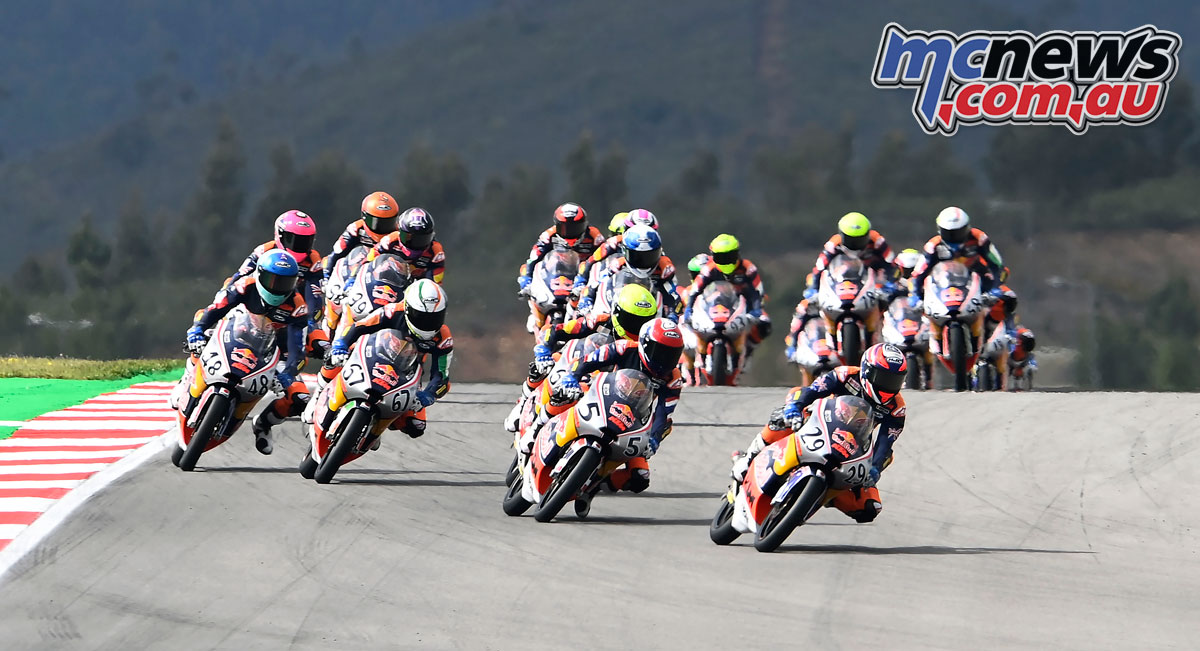
Credit: www.mcnews.com.au
Table of Contents
Introduction To Motorcycle Racing
Welcome to the high-octane world of motorcycle racing! Dreams of riding at breakneck speeds and the thrill of fierce competitions fuel many to pursue a career in this adrenaline-packed sport. This captivating realm is not just about the speed but also about precision, strategy, and endurance. Let’s dive into what makes motorcycle racing an exhilarating adventure.The allure of speed and competition
The Allure Of Speed And Competition
Motorcycle racing captivates with its incredible display of speed and the thrill of head-to-head battles. Racers experience the rush of zooming past opponents, maneuvering through tough corners, and the ultimate chase towards the finish line. Every second counts, and every move can lead to victory or defeat. This pursuit of speed and victory is what draws enthusiasts to the sport, eager to test their limits.Brief history of the sport
Brief History Of The Sport
The origins of motorcycle racing date back to the late 1800s, not long after the invention of motorcycles. It has evolved from humble beginnings into a globally celebrated sport. Legendary races, such as the Isle of Man TT, which began in 1907, helped shape the early days of motorcycle racing. These events paved the way for modern-day competitions like MotoGP and Superbike World Championship, setting the scene for future racers to make their mark.More content should follow…
Types Of Motorcycle Racing
Are you dreaming of the thrill that comes with motorcycle racing? It’s a world where speed meets strategy, and adrenaline meets precision. Before you suit up and rev your engines, let’s shift gears and explore the wide-ranging types of motorcycle racing. Each discipline offers a unique set of challenges and requires a specific skill set. Knowing where your passion lies will pave the way to a career on the track.
Road Racing Vs. Off-road Disciplines
Road racing and off-road disciplines are the two main paths in motorcycle racing. Choose based on your interests and skills.
- Road Racing: Often takes place on asphalt tracks.
- MotoGP and Superbike: Part of road racing with different bikes and rules.
- Off-Road: Includes racing on non-paved surfaces.
- Motocross and Rally Raid: Categories within off-road discipline.
Popular Championships Around The World
Motorcycle racing championships draw crowds globally. Get ready to know the top spots where racers earn their fame.
| Championship | Type | Region |
|---|---|---|
| MotoGP | Road Racing | International |
| World Superbike | Road Racing | International |
| AMA Supercross | Off-Road | United States |
| Dakar Rally | Off-Road | International |
Starting a career in motorcycle racing is no small feat. Dedication and focus are key. With this guide to the types of motorcycle racing and popular championships, you are closer to your dream. Find your race, train hard, and never stop chasing the checkered flag!
Physical And Mental Preparation
Embarking on a career in motorcycle racing requires rigorous physical and mental preparation. A racer must have strong endurance and sharp focus. The right regimen ensures top performance on the track. Let’s zoom into the details of building your strength and mindset.
Building The Racer’s Physique
Success on the track starts with a strong body. A racing motorcycle isn’t easy to control. Riders need a powerful physique to handle the intense demands of racing. Physical training routines often involve:
- Cardiovascular exercise: Enhances endurance and heart health.
- Strength training: Builds muscle necessary for bike control.
- Flexibility routines: Increases range of motion for better agility on the bike.
- Core workouts: Develops stability for improved riding posture.
Nutrition is key. Balanced diets fuel the body for rigorous training and race day. A table of ideal food groups is below:
| Food Group | Benefits |
|---|---|
| Proteins | Builds and repairs muscle |
| Carbohydrates | Provides energy |
| Fats | Supports cell growth |
| Vitamins & Minerals | Promotes overall health |
Cultivating A Racer’s Mindset
The mind of a racer is as crucial as their physical prowess. Confidence and focus pilot a racer to victory. Key mental training techniques include:
- Visualization: Imagining successful races sharpens mental acuity.
- Meditation: Manages stress and enhances concentration.
- Goal-setting: Keeps motivation high and progress on track.
- Psychological conditioning: Prepares the mind for high-pressure situations.
Consistent mental rehearsal strengthens the racer’s cognitive skills. This leads to better decision-making mid-race. A strong body and a sharp mind make a formidable racer. Prepare both diligently for success in motorcycle racing.

Credit: www.amazon.co.jp
Acquiring The Right Gear
Embarking on a motorcycle racing career is thrilling. Starting strong involves gearing up correctly. The right gear propels you towards becoming a pro racer while keeping you safe on the track. Let’s dive into selecting the perfect motorcycle and essential safety gear for racing.
Choosing A Racing Motorcycle
The race begins with the right bike. Prioritize performance, reliability, and suitability for your racing category. Test different models, considering each bike’s weight, power, and handling. Seek advice from experienced racers and reputable dealers.
| Motorcycle Model | Category | Weight | Power |
|---|---|---|---|
| Yamaha YZF-R3 | Lightweight | 169 kg | 42 hp |
| Kawasaki ZX-6R | Middleweight | 196 kg | 130 hp |
| Ducati Panigale V4 | Superbike | 198 kg | 214 hp |
Track compatibility is key. Select a bike that matches your skill level. Invest in a platform that allows you to grow.
Essential Safety Equipment
Racing demands high-quality safety gear to prevent injuries. Your helmet, leathers, gloves, and boots must meet racing standards. Always choose certified and tested equipment from trusted manufacturers.
- Helmets: Should be full-face, meeting DOT, ECE, or Snell standards.
- Racing Suits: Opt for professional-grade leather suits with proper armor.
- Gloves: Ensure they have reinforced palms and slider protection.
- Boots: Look for high-cut designs that protect your ankles and heels.
Wear your gear when testing bikes. Comfort and maneuverability contribute to your performance.
Safety equals confidence. Proper gear allows you to focus on perfecting your technique.
Learning The Craft
Learning the craft of motorcycle racing requires dedication, practice, and a deep understanding of both your machine and the techniques needed to compete at a high level. Embarking on this journey is thrilling, and setting off on the right path will ensure a strong foundation for a career in racing.
Starting With Basic Riding Skills
Before speeding on the racetrack, mastering basic riding skills is crucial. It sets the groundwork for a successful career in motorcycle racing. Begin with these essentials:
- Understanding motorcycle mechanics
- Practicing safe riding – always wear protection
- Perfecting balance and coordination
Enroll in a reputable riding school. Learn from experienced instructors. Practice regularly to build muscle memory and confidence.
Advanced Techniques For Competitive Racing
Transitioning from casual riding to competitive racing demands advanced skills. Experienced racers often share insights on these techniques:
- Throttle control
- Braking techniques
- Cornering skills
These skills are vital on the racetrack. Attend advanced riding courses. Invest in track days for real-world racing experience. Connect with a mentor who can provide personalized advice and feedback.
Licensing And Certification
Welcome to the thrilling world of motorcycle racing! Before the adrenaline rush, there’s an important first step: getting properly licensed and certified. This shows you understand the sport’s safety and regulations. Let’s jumpstart your career with the right credentials.
Obtaining A Racing License
Securing a racing license is the gateway to your motorcycle racing career. It proves your skill and knowledge about riding and racing safely.
- Find a local motorcycling association. They manage licensing in your region.
- Complete a racing school program. This will equip you with essential skills.
- Pass written and on-track tests. Show your understanding and control of the bike.
- Apply for the license. Submit your application and evidence of your passing grades.
- Pay the fee. Licensing often requires a payment. Check with your association.
Understanding Racing Regulations
Knowing the rules is as crucial as riding fast. Regulations ensure safety and fair play.
- Study the rulebook. Every racing body has one; get your copy and learn it.
- Attend rider briefings. Always go to pre-race meetings for updates and changes.
- Know the flag signals. Flags communicate key info during races. Memorize them all.
Remember, ignoring rules can not only disqualify you but also pose risks to everyone on the track. Play it safe, play it right, and you’ll be on your way to a successful racing career!
Finding A Racing School Or Coach
Embarking on a career in motorcycle racing is an exhilarating decision. The first step often begins with the critical choice of finding the right racing school or coach. This phase sets the foundation for your racing skills, knowledge, and safety on the track.
Benefits Of Professional Instruction
A professional racing school or coach offers invaluable benefits:
- Expert Guidance: Learn from those with race-proven experience.
- Safety Training: Understand the essentials of track safety.
- Skill Development: Hone racing techniques to enhance performance.
- Feedback: Receive personalized advice to improve your racing style.
How To Select A Racing School Or Mentor
Choosing the right school or mentor involves several considerations:
| Consideration | Details |
|---|---|
| Program Structure | Look for a curriculum that starts with basics and progresses to advanced techniques. |
| Instructor Credentials | Seek out instructors with professional racing background and teaching experience. |
| Equipment Quality | Ensure the school provides well-maintained motorcycles and safety gear. |
| Track Record | Research the success rate of the school’s alumni in the racing world. |
| Location & Accessibility | Consider proximity to your location and the availability of training schedules. |
Remember, the right environment and mentor can skyrocket your racing career. Invest time in finding a school or coach that aligns with your goals and sets you on the path to victory.
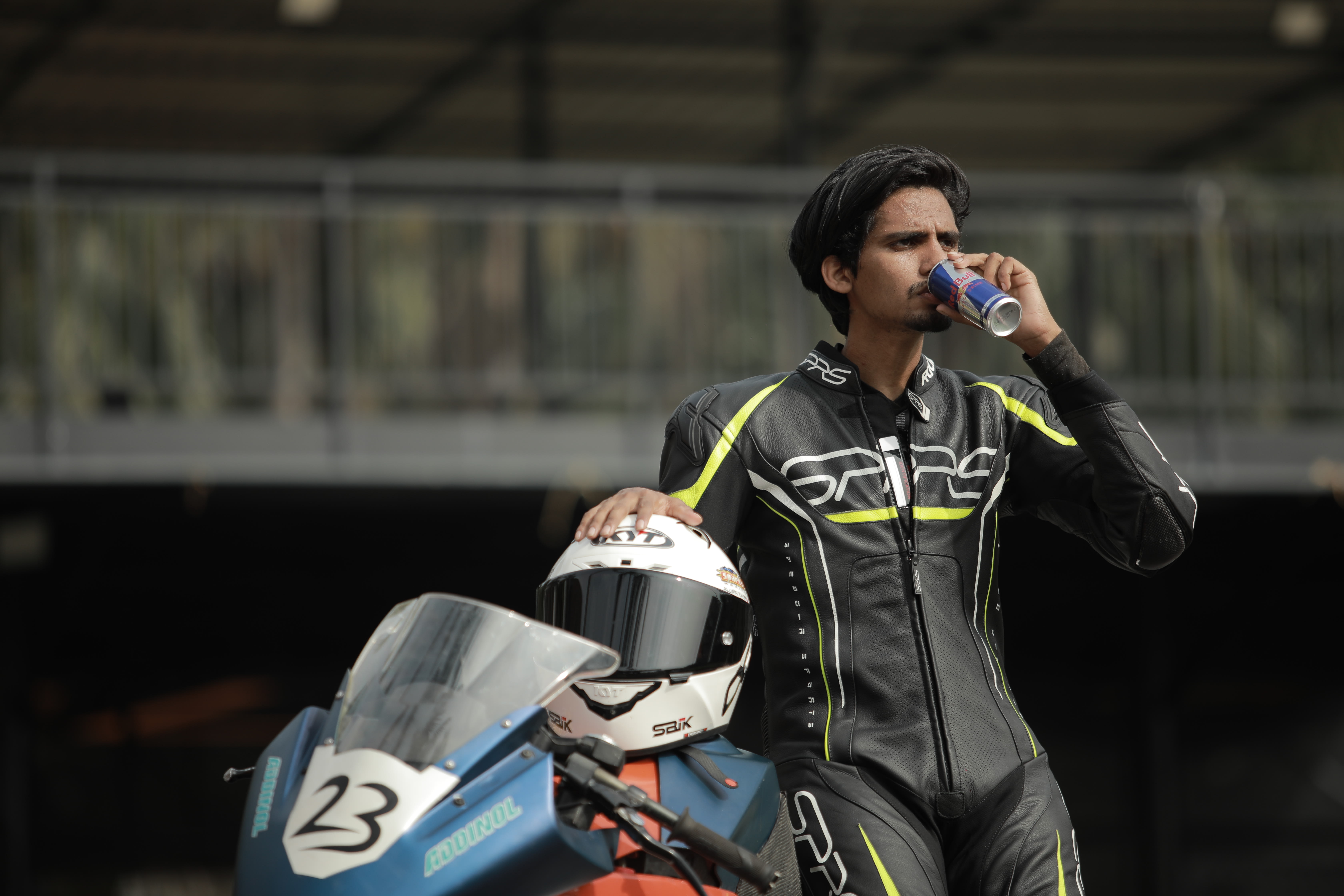
Credit: www.redbull.com
Gaining Experience
Gaining Experience in Motorcycle Racing starts with a roar, not a whisper. Thrill-seekers and speed enthusiasts often dream of carving tight corners at breakneck speeds. But the journey from dream to track requires real-world experience. Riders must learn the ropes, navigating through local races and eventually, ascending to the intense competition of higher-level racing circuits. This valuable experience hones skills, builds confidence, and lays the groundwork for professional success.
Starting With Local Races
Before aiming for the stars, budding riders must take their first leap from the starting grid of local races. These events provide an excellent platform for learning and development:
- Understanding the dynamics of racing motorcycles.
- Mastering the fundamental racing techniques.
- Building a network within the racing community.
- Gaining exposure to real competition.
Local circuits are often more accessible and less intensive, creating a perfect environment for novices. Participation in these events serves as a gateway to the larger world of motorcycle racing.
Progressing To Higher-level Competitions
With a solid foundation laid at the local level, racers can then shift gears to more prestigious events. Advancing to higher levels entails:
- Sharpening skills with more focused training and practice.
- Competing against advanced riders to refine tactics.
- Seeking sponsorship to support career growth.
Each race is a stepping stone to greater achievements. Riders must persist and adapt as the stakes grow and competition stiffens.
Building A Personal Brand
The race to success in the world of motorcycle racing involves more than just speed and skill on the track. Just like any pro athlete, a racer must also excel off the track by building a strong personal brand. Doing so can attract sponsors, nurture partnerships, and create a loyal fan base vital for long-term success.
Marketing Yourself As A Racer
Establishing a personal brand begins with showcasing your unique personality, style, and achievements. Use social media to share your racing story, engage with fans, and promote your racing journey.
- Create a professional website and update it regularly with content.
- Share behind-the-scenes photos and videos to connect with your audience.
- Engage with racing communities online and participate in relevant conversations.
Remember to highlight your victories, dedication, and the relentless pursuit of excellence. Each post, image, and interaction should amplify your identity as a racer.
Securing Sponsorships And Partnerships
With a compelling brand, you can begin chasing vital sponsorships that offer the support you need. Showcase your marketability with a professional media kit that includes:
| Component | Description |
|---|---|
| Racing Achievements | List your wins, podium finishes, and milestones. |
| Media Coverage | Highlight articles, interviews, and broadcasts featuring you. |
| Social Media Stats | Show your followers count and engagement rates. |
| Demographics | Share details about your fan base, including age, location, and interests. |
Reach out to potential sponsors who align with your racing style and values. Offer them valuable exposure through your racing exploits and online presence.
- Identify brands that support motorsports and share your vision.
- Prepare customized proposals outlining mutual benefits.
- Follow up persistently and maintain professional interactions.
Sponsorships are crucial, and building these partnerships hinges on the strength of your brand and the value you can offer to sponsors.
Staying Safe On The Track
Embarking on a career in motorcycle racing excites and challenges riders. Ensuring safety on the race track is crucial. Adequate preparation, awareness of potential risks and quick reaction to emergencies define a racer’s longevity in the sport. Follow these guidelines to remove ‘ensure’ stay safe while pursuing speed.
Risk Management In Racing
Risk management is a top priority for any racer. Consider these essential steps:
- Wear appropriate gear – Helmets, suits, boots, and gloves must be high-quality, well-fitting, and suited for racing.
- Pre-race checks – Always inspect your motorcycle thoroughly. Ensure brakes, tires, and engine are race-ready.
- Understand your limits – Know your skills. Do not push beyond what is safely manageable.
- Observe track conditions – Weather and track layout affect riding. Adapt your speed and technique accordingly.
All these points help minimize risk and keep racers safe.
Emergency Protocols And First Aid
Be prepared for emergencies. Racers must know:
- Track emergency protocols – Learn the procedures. Know who to contact and what to do in case of an accident.
- Basic first aid – Can save lives. Take classes to learn CPR, wound management, and other critical first aid skills.
- Use of safety equipment – Fire extinguishers and safety flags are vital. Know their locations and usage.
Trained racers can act swiftly in emergencies, reducing the impact of accidents.
Climbing The Ranks
A journey from amateur corners to the start line of professional motorcycle racing is thrilling. It demands dedication, skill, and a fierce competitive spirit. Potential racers must navigate through various levels. They refine their skills, build their reputation, and garner the attention of sponsors and teams. The climb is steep, but the view from the top is unparalleled. Discover the adventure of going from amateur to professional and the relentless pursuit of becoming a champion.
From Amateur To Professional
Starting a career in motorcycle racing begins at the grassroots. Aspiring racers need to gain experience and prove their potential in amateur races. Local track days and smaller regional competitions are typical starting points.
- Obtain a racing license: Attend certified schools and pass evaluations to receive your credentials.
- Compete regularly: Enter as many races as possible to practice and get noticed.
- Learn from each race: Review performance, fine-tune skills and seek feedback from experienced riders.
Transitioning to professional status involves more than just winning. It’s essential to network with industry professionals and present oneself as a brand. Engage with fans, create a solid social media presence, and seek partnerships with local businesses for sponsorship.
The Path To Becoming A Champion
Champions are made through persistent effort and strategic career moves. Growth involves climbing through various racing classes and mastering powerful bikes.
- Master the basics: Consistently secure top positions in amateur leagues.
- Step up to national races: Gain entry into more competitive tournaments and showcase talent on a bigger stage.
- Get team backing: Aim to join established racing teams that provide advanced tech and logistical support.
- Compete internationally: Entry into international races exposes riders to diverse tracks and conditions.
Champions maintain physical fitness, mental sharpness, and are continually learning. Reading the race, adapting to conditions, and making split-second decisions set champions apart. A combination of grit, talent, and the willingness to push boundaries defines a true motorcycle racing champion.
The Business Of Motorcycle Racing
Embarking on a career in motorcycle racing is thrilling. Success demands skill, speed, and strategy. Stamina on the track is essential. Yet, what happens off the track is crucial, too. The business side of racing is a pivotal part of a racer’s career. This includes handling money and planning for the future.
Handling Finances As A Racer
Managing finances is key to a racer’s success. It fuels the journey from amateur to pro. Here’s how to stay financially sound.
- Build a budget: Track expenses and allot funds for training, gear, and travel.
- Seek sponsorships: Partner with brands that align with your values.
- Save: Allocate a portion of earnings for unforeseen expenses.
- Invest wisely: Find opportunities that can grow your wealth long-term.
Racers must record every transaction. Software helps maintain this record. Keep in touch with a financial advisor for wealth growth.
Exploring Career Opportunities Post-racing
Think ahead to life after racing. Here are paths many racers take:
| Career Path | Description |
|---|---|
| Coaching | Share your expertise with aspiring racers. |
| Team Management | Lead a team to victory from behind the scenes. |
| Commentary | Provide insights and analyses for broadcasts. |
| Product Endorsement | Use your reputation to promote brands. |
| Entrepreneurship | Launch your own business within the industry. |
Networking is vital. Keep in touch with mentors, sponsors, and racing peers. This widens your opportunities post-racing.
Frequently Asked Questions On How To Start Career In Motorcycle Racing
What Qualifications Needed For Motorcycle Racing?
To start a career in motorcycle racing, no formal qualifications are required. However, strong riding skills, a deep understanding of motorcycle mechanics, and physical fitness are essential. Most racers begin by obtaining a racing license through accredited bodies.
How To Begin A Motorcycle Racing Career?
Begin by participating in local races and gaining experience. Attending a racing school can provide valuable training. Networking with riders and teams is crucial. Secure a racing license and continuously improve your skills on different tracks.
What Is The Cost Of Starting Motorcycle Racing?
The initial cost of motorcycle racing can be high. It includes purchasing a competitive motorcycle, safety gear, race entry fees, and maintenance expenses. Amateur racers might spend several thousand dollars to get started.
Is Age A Barrier In Motorcycle Racing?
There’s no specific age at which you must start; however, many professional racers begin young. Young riders often have a competitive advantage due to their quicker reflexes and adaptability. Nonetheless, determination and skill are key factors, regardless of age.
Bottom Line
Embarking on a motorcycle racing career is thrilling. It takes dedication, training, and strategic planning. Start with local races, then climb the ranks. Invest in safety gear and continuous learning. Remember, persistence and passion fuel your journey to the finish line.
Rev up, your racing dream awaits!
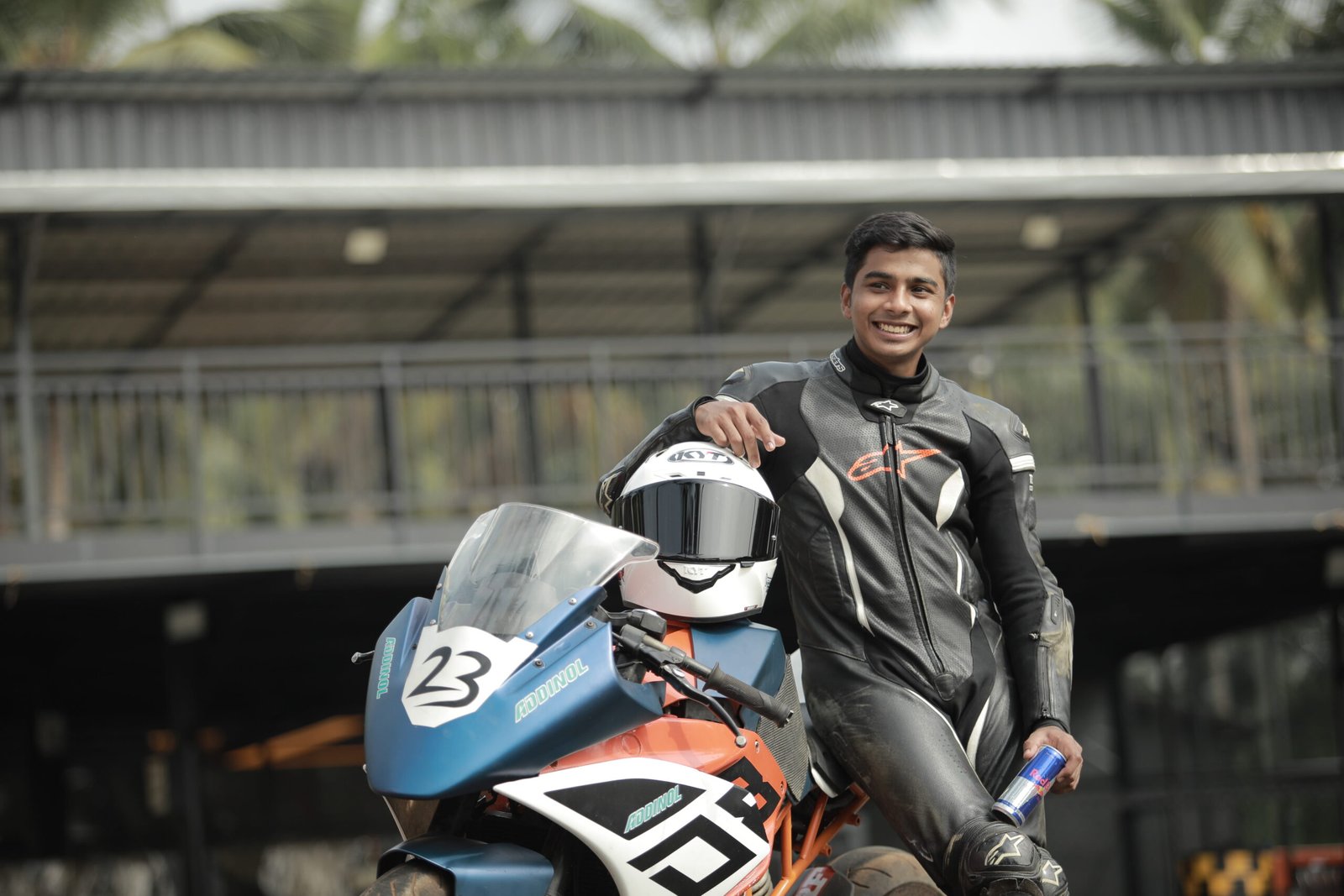
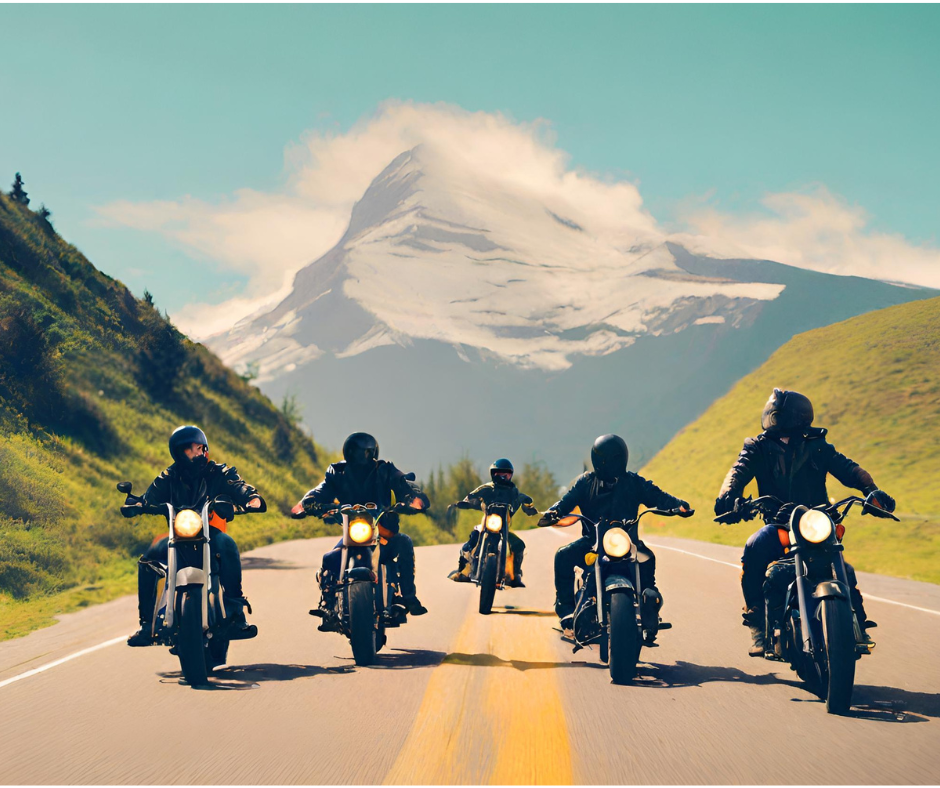
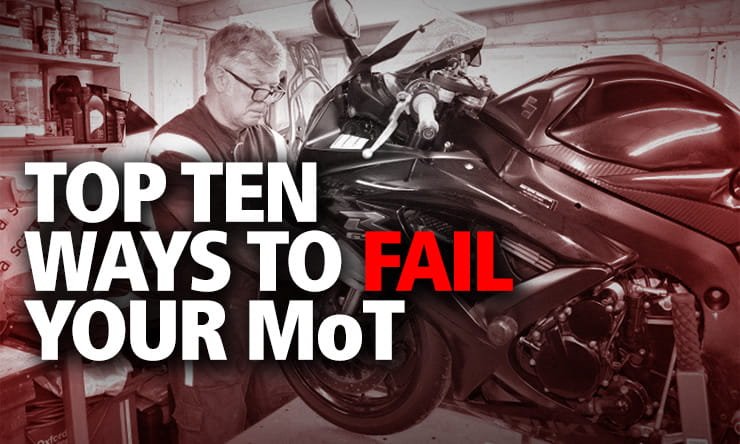
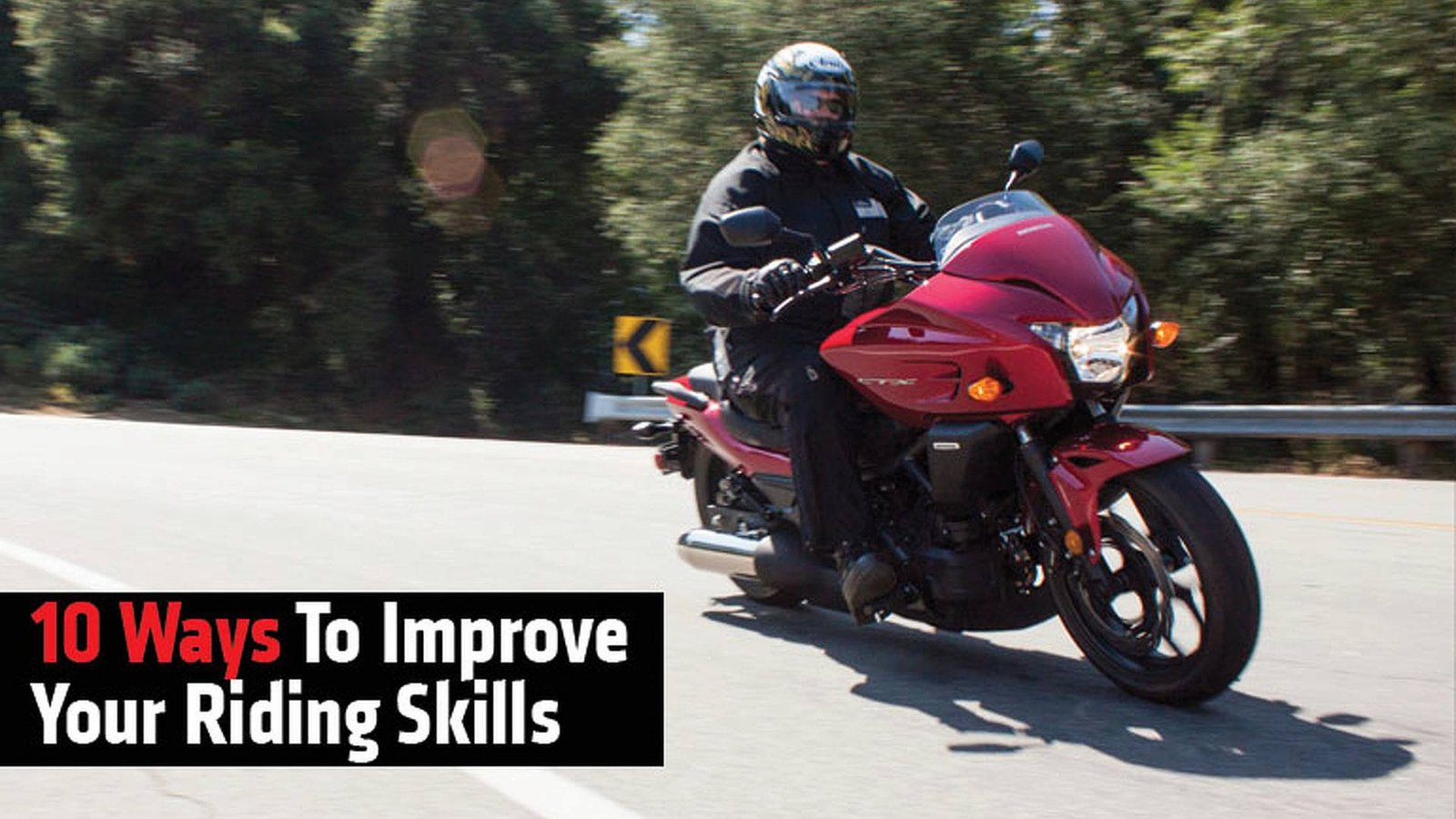
Leave a Reply